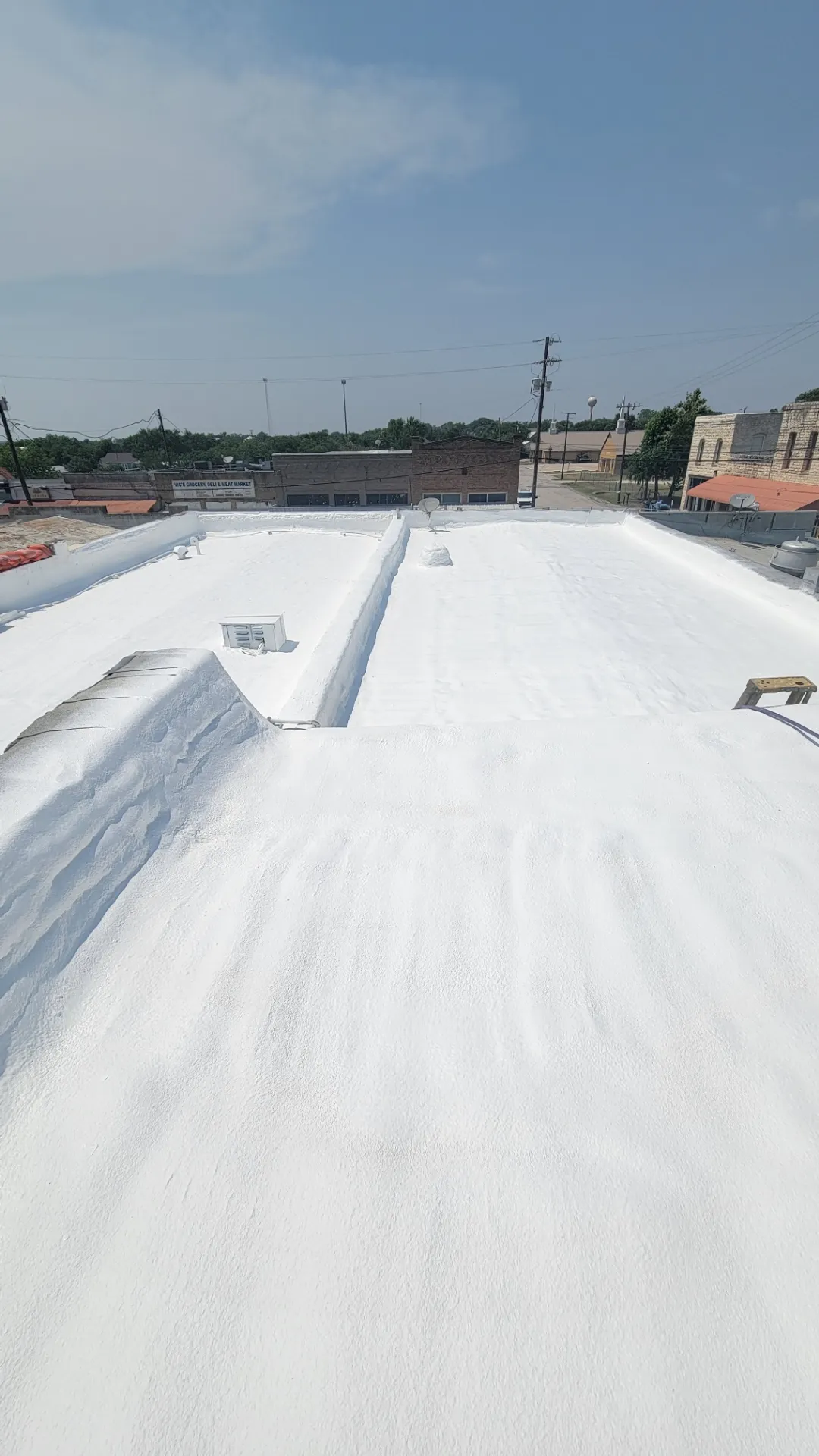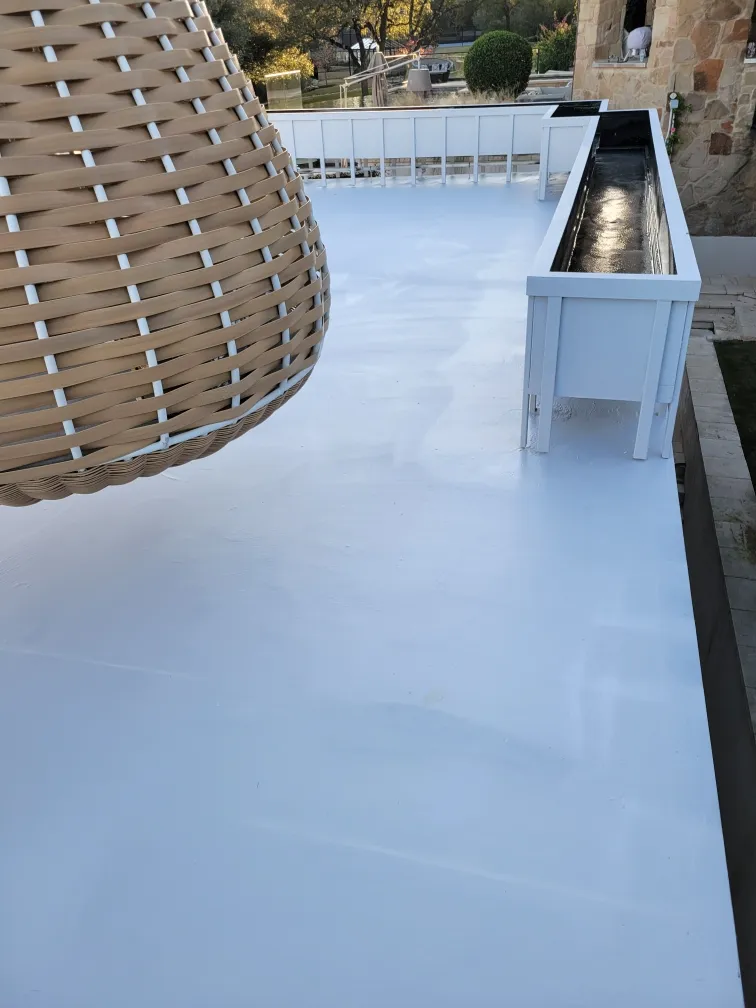
Picture a summer afternoon in Leander, the sun beating down on your roof, heat radiating through your attic, and your AC working overtime. Spray foam roofing insulation flips the script, locking out extreme temperatures and slashing energy waste. Whether you're shielding your home or business, spray foam offers a clean, efficient way to improve comfort, lower utility costs, and guard against moisture damage. It's more than insulation — it's year-round peace of mind for Leander and surrounding areas.
Spray foam roofing forms a continuous, seamless barrier across your roof surface, sealing cracks, gaps, and weak points where air and water can sneak in. It not only insulates but strengthens the structure by adding rigidity and reducing thermal movement. That means fewer leaks, better indoor temperature control, and a longer-lasting roof.
A well-applied spray foam roof improves HVAC efficiency and indoor air quality. It blocks pollen, dust, and allergens while creating a quieter interior environment. Leander residents appreciate these benefits in both residential and commercial spaces, especially during temperature swings and seasonal storms.
Every roof is different, so each spray foam roofing system begins with a full inspection. The surface is cleaned, prepped, and dried to ensure strong adhesion. Spray polyurethane foam is then applied in layers, expanding to form a solid, high-density surface that adheres to most existing roofs.
After the foam cures, a protective coating is added to shield it from UV rays and weather exposure. This final layer can also improve reflectivity, helping reduce heat absorption. The process is fast, clean, and avoids costly roof tear-offs in most cases.

Spray foam roofing insulation stands out when compared to other common materials:
Insulation Type | Seamless Coverage | R-Value per Inch | Adds Structural Strength | Moisture Resistance |
Spray Foam | Yes | High | Yes | High |
Fiberglass Batts | No | Moderate | No | Low |
Rigid Foam Board | No | High | Moderate | Moderate |
Spray foam delivers high thermal resistance (R-value) in less space. It adapts to odd roof shapes and hard-to-reach areas, creating a tight seal that traditional insulation types can't match.
If your existing roof has structural damage or standing water issues, spray foam may not be the best fit without prior repairs. Flat or low-slope roofs are ideal candidates. Foam thickness, slope, drainage, and coating type all impact performance.
Things to Consider:
Spray foam isn't always the answer, but when it's right, it outperforms traditional insulation in almost every category.
For business owners, spray foam roofing can reduce overhead. Commercial buildings in Leander and surrounding areas often have flat roofs that absorb heat and suffer from water damage. Spray foam's moisture barrier and insulation combo prevents rot, mold, and energy loss.
Many commercial clients see a return on investment in just a few years. Reduced HVAC load, fewer repairs, and a longer roof lifespan all contribute to lower maintenance and energy costs over time.
Intense sun, flash floods, and wind-driven rain hit Leander year after year. Spray foam roofing insulation stands up to it. It bonds directly to the substrate, creating a monolithic surface with no seams to split or lift in high winds.
The closed-cell foam blocks water infiltration while resisting mildew, pests, and thermal drift. In Leander's hot summers and cool winters, maintaining a consistent indoor temperature becomes easier and cheaper with this insulation approach.
Looking for a smarter, stronger way to insulate your roof? Call (737) 777-9590 now to schedule a consultation. Get answers, options, and a quote from the Spray Foam Tech local experts who understand what Leander homes and businesses need.
With proper maintenance, spray foam roofs can last over 20 years.
It works best on flat or low-slope roofs and most existing roof surfaces with good condition.
Yes. Once cured, spray foam is inert, non-toxic, and improves indoor air quality.
In many cases, spray foam can be applied directly over your current roof.
Yes, it provides sound dampening by sealing out air gaps and absorbing vibrations.